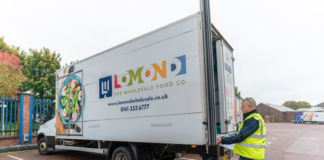Over half of all alcohol wholesalers may unknowingly be trading illegally, Helena Drakakis reports
We almost always think of the supply chain in terms of products and services and the journey they make from supplier to customer. Rarely do we think of it in terms of the exchange of information.
A failure in this kind of supply chain may have been the case last month, when HMRC announced that registrations for the newly-introduced Alcohol Wholesaler Registration Scheme had fallen well below the expected take-up.
Under the scheme, which is intended to stamp out evasion of duty on beers, wines and spirits, wholesalers had until March 31 to register, after which any that didn’t would be selling alcohol illegally.
But out of an estimated 20,000 wholesalers, only around 4,800 had registered by that date, despite HMRC having directly identified 9,500 that were eligible.
The reasons for the shortfall are unclear. HMRC says the original figure was a guesstimate ‘made on the best information available’.
An HMRC spokesperson adds: “In the past, wholesalers have not been required to register with HMRC so we knew the numbers were not exact.
“We are now looking at who applied and we will use that analysis to determine what we do next for those who have not applied but should have.”
However, the Federation of Wholesale Distributors (FWD), which first proposed the scheme, claims that the figure isn’t necessarily low or the result of a perceived operational burden. It stresses that all FWD members that handle alcohol have signed up.
 “We don’t know what the true number of wholesalers is,” says spokesman David Visick. “It may be that those who haven’t registered have not done so because they are not fit and proper alcohol traders. Or it may be that they are wine merchants or brokers who aren’t aware of the scheme or don’t think it applies to them.”
“We don’t know what the true number of wholesalers is,” says spokesman David Visick. “It may be that those who haven’t registered have not done so because they are not fit and proper alcohol traders. Or it may be that they are wine merchants or brokers who aren’t aware of the scheme or don’t think it applies to them.”
Evasion of alcohol duty is believed to cost the Treasury £1.3bn a year in lost revenue, and incompliant wholesalers now face the threat of a £10,000 fine or a criminal conviction. However, HMRC concedes there ‘may be some legitimate reasons for late applications, and so we will look at each case individually and base any decisions about penalties on the circumstances’.
The bigger problem, however, will surely come next year when the law will extend to retailers who will also be implicated if they buy alcohol from unlisted wholesalers. The FWD describes informing this frontline part of the chain as ‘a massive job’.
If even the wholesalers handling alcohol don’t know whether they should or should not register, what are the implications for those thousands of retailers who, as of next year, may unwittingly be breaking the law if they source their alcohol from an unregistered business?
Faisal Naseem, of Party Time in Arbroath, says that when the new legislation comes into force he will have “few concerns” as he uses large, reputable wholesalers. However, he believes that wholesalers should be made to display their credentials in-depot.
“I’m tech-savvy, but even I wouldn’t know where to look to see if a wholesaler is registered. Older retailers and those independents who use smaller wholesalers are often faced with an information void, and it’s unrealistic to assume they will search for the information.
“All wholesalers should be made to display they are a trusted source around their alcohol, so customers can see it and feel confident.”







